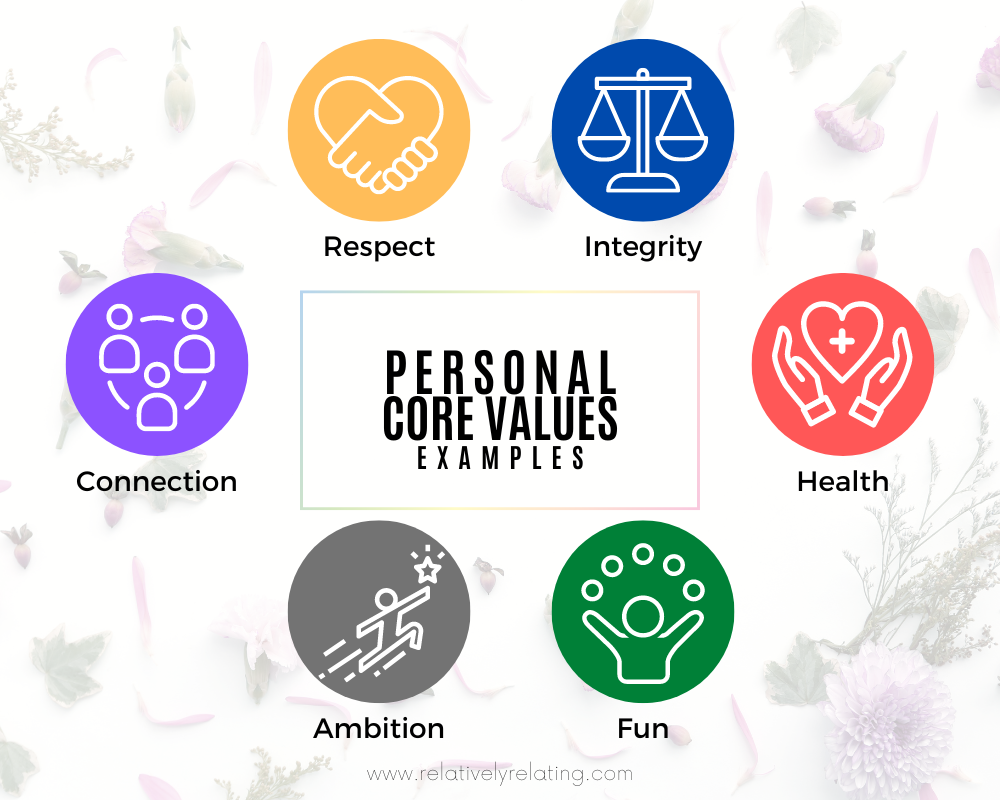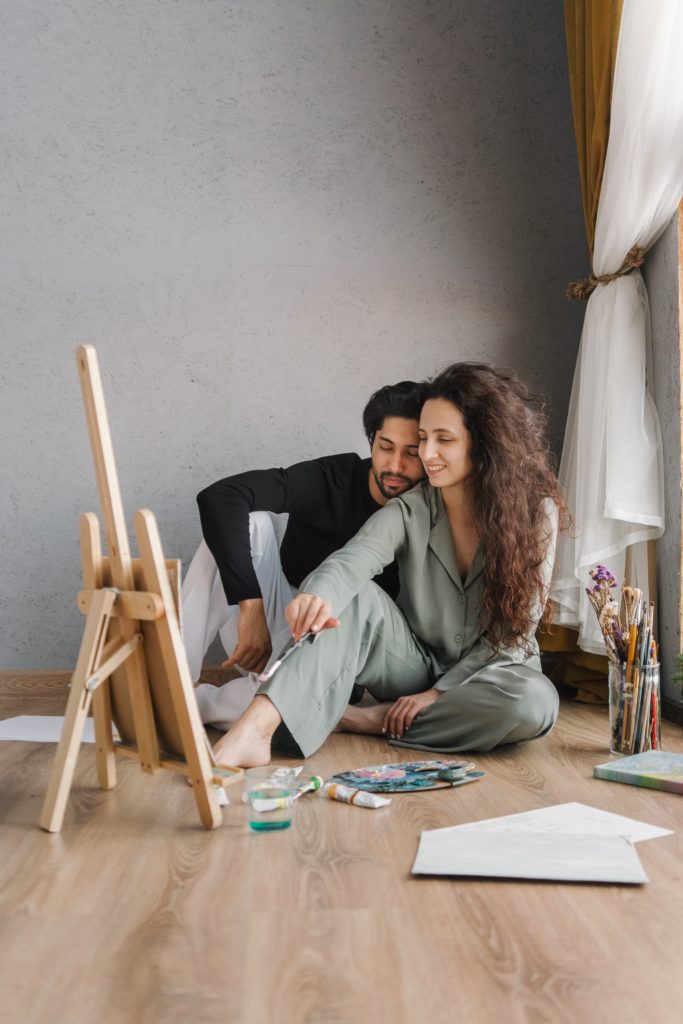
It’s common to think the more we give of ourselves, the better our relationships will be. Contrary to popular belief and as counterintuitive as it may seem, preserving a dose of individuality is a primary factor in the magic of a healthy romantic bond. With the rise in the awareness of self-love and the importance of self-care in our growing global culture, many are realizing the relationship with yourself is one of the most important to sustain. Adopting some self-love techniques can help maintain your sense of self in a relationship.
Being in a meaningful intimate relationship is what many people desire at some point in their lives despite culture, age, race, religion, or any other way we define ourselves within society. However, each person shows up differently in relationships based on factors like childhood upbringing and culture. Some do well at staying grounded in themselves, still being able to honor their partners’ needs. It’s natural to want to share time, space, and energy with that special someone, but too much sacrifice can lead to losing ourselves before we realize it. For this reason, some of us need ways to help set healthy boundaries.
Although we may have different religious and spiritual practices, investing in this area of life can be essential to preserving individuality for anyone. The Institute for Family Studies states religion and spirituality can promote self-esteem as well as a sense of purpose in life.
Even if religion is a point of connection between two people, taking personal time for spiritual development offers valuable opportunities for self-reflection. It gives us a deeper understanding of ourselves and our sense of purpose, which grants us validation from sources independent of our partners.

We typically assume that we know the principles that are most important to us. However, clearly articulating our core values can be more tricky than it seems unless we consciously assess them. What’s more, core values can shift over time as we grow.
Knowing your values enables you to maintain your sense of self in a relationship because they provide the foundation to set boundaries. Core values serve as guidelines to set standards for what people desire from a relationship.
Too often, we leave our most valued principles as guesswork for our partner, then resent our loved one for not knowing and respecting our value system.
Identifying our core values gives us understanding and empowers us to ask others to honor them. More importantly, it allows us to stand firm in our values and individuality when challenged by others’ ideas. However, it’s critical to remember that our actions should align with our core values because we can only ask others to respect what we honor ourselves, first and foremost.
Doing things that make your partner smile gives a special kind of satisfaction. Still, it’s best to understand the intentions behind our actions, regardless of how we choose to show love and appreciation.
In the beginning, signs of appreciation can be very genuine. Even after the newness of a relationship wears off, compromising our needs and desires to satisfy our partners can be healthy. However, we sometimes over-compromise, feeling taken for granted by doing things out of obligation instead of love. These feelings are a breeding ground for resentment when they go unchecked, which stifles the relationship dynamic and our personal growth.
One key solution is to consistently check our intentions. Even if we’re not exactly sure why we’re doing something for our partner, exploring why we no longer feel happy to serve them can shed light on what may be going on internally.
Over-compromising typically indicates that our boundaries are being undermined in some way. Other times, it may simply mean we are burned out or depleted. Either way, assessing these feelings is necessary to maintain your sense of self in a relationship. It offers insight into any personal or relationship issues that need to be addressed, so we stay true to what we feel. It ensures we’re doing things from an authentic place, which ultimately serves everyone involved.
Speak your truth respectfully but without guilt. Understanding that this may be difficult for those with people-pleasing tendencies, find courage in the fact that we cannot hold anyone accountable for what we have not expressed to them… including our partners. We must tell them.
No one knows what we want or need more than we do. So, no one is better equipped to speak up for our needs and desires than we are. When we don’t use our voice, we eventually lose the courage and the language to communicate, much like a muscle.
Our voice is one of the most powerful tools we have to advocate for ourselves. Utilizing it, empowers us and strengthens our intuitive ability to freely express. Self-advocacy is a practice that keeps us attuned to our own thoughts and feelings. It also reminds us and our partners that our interests matter.
Being creative is an effective practice of upholding individuality. Our creativity reminds us of the talents that make us unique. It also promotes well-being by allowing us to get into a state referred to as creative flow.
Dr. Brad Brenner of Therapy Group of NYC, explains, during creative flow “the prefrontal cortex temporarily deactivates, or ‘goes quiet,’ making us less critical of our ideas and more courageous…. our brain releases ‘an enormous cascade of neurochemistry,’ including large quantities of endorphins, serotonin, and dopamine. These are pleasure- and satisfaction-inducing chemicals that affect creativity and well-being.”
In other words, during creative flow, we express our unique gifts in a way that is intrinsically validating and self-gratifying.
Many people still think of typical art forms when they think about creativity, but that is just one aspect of the spectrum. Self-expression presents in many different forms, including everything from coding to cooking. No matter the passion or interest, find your thing and do it as often as possible.

Some people focus on acquiring a marketable skill set to improve their status when they think of personal growth & development. However, it also pertains to developing our emotional intelligence and healing suppressed pain and trauma. It’s often an aspect of ourselves people avoid because it’s challenging to handle. It can get messy before it gets any better. Still, emotional development is necessary and always worth it.
It involves identifying personal triggers; uncovering traumas to understand how they drive our behaviors; recognizing unhealthy coping mechanisms we’ve adopted over time; as well as forgiveness. Ultimately, the goal is to heal the wounds that affect how we interact with others in our relationships.
Personal growth is complex, and knowing where to start the journey can be overwhelming. One approach for those who can afford it is to start with a mental health professional or advocate. Working with a professional provides the structure, support, and accountability that’s needed to keep going when the work gets challenging. Whether it’s a coach, a counselor, or a therapist, invest time in finding a pro that’s the right fit. There is a variety of resources available for these services as well. Mental health care can be covered by health insurance in some cases, so do your research.
If you’re like me when I started, unable to hire someone, then free and low-cost content is available to get going. An online search can provide books, articles, and blogs to help.
Personal growth is a bridge to self-love because it lets us get to know ourselves more deeply. We gain awareness, language, and tools to facilitate the journey. It helps us to see value in ourselves even if others don’t, so our self-worth isn’t subject to the conditional appreciation of others. Along the way, we become higher-functioning versions of our true selves.
Maintain your sense of self in a relationship one step at a time through personal validation and support outside of the relationship.
The ability to love ourselves is essential to our individuality, and, in turn, staying true to ourselves is key to preserving self-love. Nurturing our uniqueness enables us to show up in our relationships authentically.
That authenticity increases the potential for fulfillment by allowing the space for us to be appreciated for who we are, rather than who we think we’re supposed to be. Our honest thoughts, genuine intentions, and true aspirations make up the magic of who we are. Our loved ones deserve every bit of that magic.